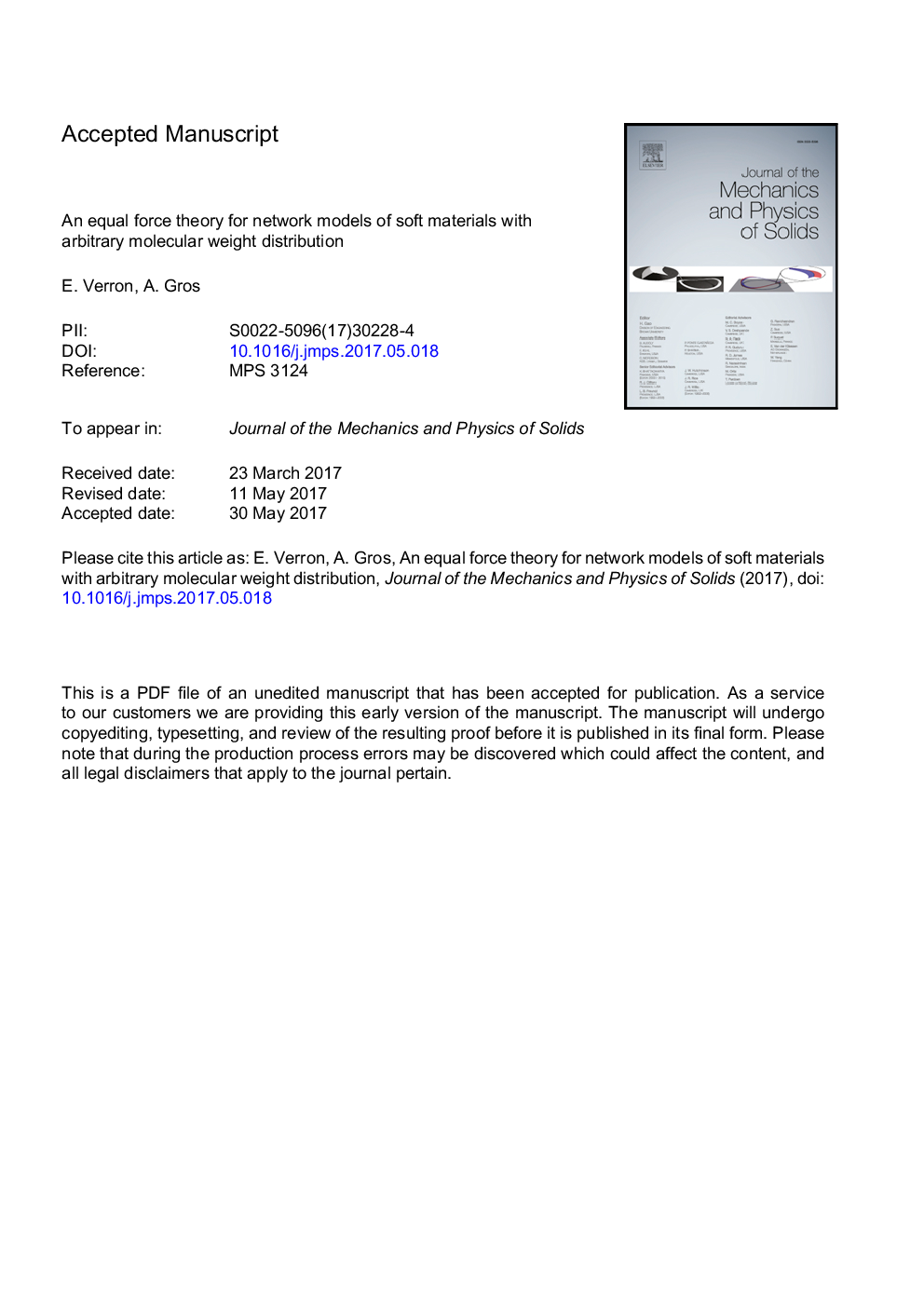| Article ID | Journal | Published Year | Pages | File Type |
|---|---|---|---|---|
| 5018095 | Journal of the Mechanics and Physics of Solids | 2017 | 30 Pages |
Abstract
Most network models for soft materials, e.g. elastomers and gels, are dedicated to idealized materials: all chains admit the same number of Kuhn segments. Nevertheless, such standard models are not appropriate for materials involving multiple networks, and some specific constitutive equations devoted to these materials have been derived in the last few years. In nearly all cases, idealized networks of different chain lengths are assembled following an equal strain assumption; only few papers adopt an equal stress assumption, although some authors argue that such hypothesis would reflect the equilibrium of the different networks in contact. In this work, a full-network model with an arbitrary chain length distribution is derived by considering that chains of different lengths satisfy the equal force assumption in each direction of the unit sphere. The derivation is restricted to non-Gaussian freely jointed chains and to affine deformation of the sphere. Firstly, after a proper definition of the undeformed configuration of the network, we demonstrate that the equal force assumption leads to the equality of a normalized stretch in chains of different lengths. Secondly, we establish that the network with chain length distribution behaves as an idealized full-network of which both chain length and density of are provided by the chain length distribution. This approach is finally illustrated with two examples: the derivation of a new expression for the Young modulus of bimodal interpenetrated polymer networks, and the prediction of the change in fluorescence during deformation of mechanochemically responsive elastomers.
Related Topics
Physical Sciences and Engineering
Engineering
Mechanical Engineering
Authors
E. Verron, A. Gros,
